The 11,306-foot summit of Mount Taylor in northwestern New Mexico was my destination one sunny autumn morning. But what I sought that day was something else: understanding and forgiveness.
I had recently committed a medical error that had harmed a patient badly: I had discharged her from the hospital on way too much insulin. It was a major mistake, and I felt terrible about it. In more than three decades of practice in primary care and geriatrics, I had committed medical errors before, but the fault had never seemed so clear-cut, nor the harm so severe.
The circumstances and contributing factors were clear. My team had admitted Sylvia Wilson, a cheerful seventy-eight-year-old diabetic woman suffering from hypoglycemia and confusion. We noted (perhaps too superciliously) how her outpatient physician had failed to recognize that a recent rise in her creatinine (indicating declining kidney function) called for a reduction in insulin. We thought ourselves good doctors as we adjusted her insulin dose downward; and her confusion promptly resolved. We asked our case manager to arrange for Mrs. Wilson’s transfer to a skilled nursing unit for a few days of rehabilitation before returning home.
Her transfer occurred abruptly, and earlier than planned. My residents were off that afternoon, so I was paged to prepare the transfer orders. The case manager urged me to be quick: The transport team was waiting as I finalized the paperwork. I’d always found our electronic discharge process cumbersome and time-consuming; that day, not only was I not speedy enough, I also wasn’t careful enough.
I pride myself on thoroughness and attention to detail—but for some reason still incomprehensible to me, I wrongfully wrote transfer orders for twice the insulin dose that we’d prescribed in the hospital. The next day, at the skilled nursing facility, Mrs. Wilson’s blood sugar plummeted to 20 (normal is about 100). She suffered a seizure and was brought by ambulance back to our hospital.
The severe hypoglycemia caused by the excessive insulin permanently injured her brain. One month later, she remained on our service, poorly responsive—and a daily reminder of my shame and guilt. Now I was second-guessing every decision I made, and every order I wrote. I had lost the quiet confidence that is an essential part of every healer’s art.
As a senior physician, I had counseled physicians-in-training and junior colleagues about useful steps to take in these situations: honest disclosure to the patient and family; participation in an objective review and analysis of cause; advocacy for system change to prevent similar errors in the future; and confidential discussion with a colleague about your emotions. I’d completed all of these—but still I did not feel at peace.
Was I so focused on getting Mrs. Wilson discharged quickly that I compromised her safety? Why was I inefficient at using the electronic health system? Would I have made this error when I was younger? Am I getting too old for this doctoring business?
These thoughts tormented me as I slipped into my backpack at the Mount Taylor trailhead. In 1849, a cartographer named this prominent peak for then-president Zachary Taylor, unaware that for centuries the Diné had gendered it female and called it Tsoodzil, Blue Bead Mountain. To the Diné it was a sacred mountain, stabbed by a stone knife to fasten it to the earth. It marked the southern boundary of the Dinétah, the traditional Navajo homeland.
Just last week, a sympathetic friend had told me a story about her grandfather. Plagued by years of addiction, he had finally found comfort and healing after experiencing the harmony of nature in such a sacred place. She shared with me Hozho naasah, “Walking in Beauty,” a Navajo prayer that celebrates walking in nature and how this leads to happiness and a loving path. Thus I’d decided to come here, a naïve white man in Native American territory, hoping that, somehow, a hike in this special place might ease my anxiety and guilt.
Still preoccupied with thoughts of my medical error, I set off up the trail. An hour later, I walked through a large grove of quaking aspens and ascended a steady slope to a seemingly endless meadow. Here I stopped for several minutes to soak up an unexpectedly soothing sound–the gentle wafting of wind in the trees. Warmed by the morning sun, I began to feel a sense of attunement with the rhythms of nature all around me. My troubled thoughts eased, and my anxiety subsided.
Further up, the way grew steeper, with several switchbacks. Pausing to catch my breath, I looked down to see a crop of blue spruce shining against a black rock formation created by volcanic eruptions 3 million years ago. The trees’ majesty and beauty were arresting. Contemplating my small place in a fantastically complex and ancient universe, I realized why the Diné might come here seeking the divine and hoping to gain a greater understanding of their role in the world.
My legs ached as the last switchback led me breathlessly to the summit. It was a remarkably clear day. Looking east to the horizon, I could just make out Albuquerque, the place where I work as a physician—and where I had made a horrible mistake, despite trying to do my best.
I paused again to hear the music of the wind and feel the warmth of the sun. In that moment, I felt the special comfort that sacred encounters offer to imperfect humans like me. Walking amid the beauty of Tsoodzil had helped me to understand that creation, though imperfect, is also beautiful; that errors are an inevitable part of life as a doctor; and that what’s most important is not being perfect but rather celebrating the joyful path of being a physician.
And I finally found forgiveness. Not from my patient’s family or my colleagues–that had already been given–but from myself.


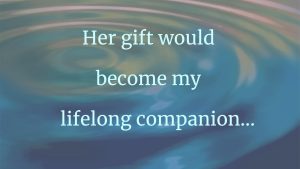
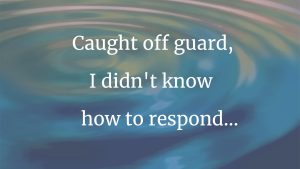
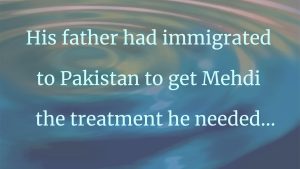
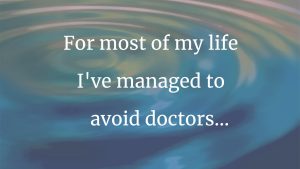
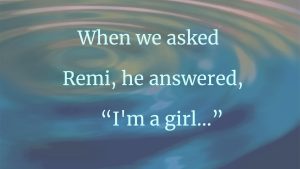
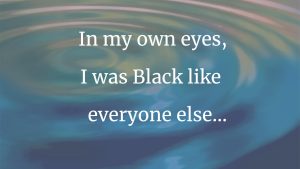

18 thoughts on “Walking in Beauty”
Pingback: "Walking in Beauty" A Doctor's Med Error Story! | Confident Voices in HealthcareConfident Voices in Healthcare
there but for the grace of god go I. please god watch over me as I continue to practice medicine. I am human and fallible. my feet are made of clay.
A number of years ago a young person died in the O.R. in the process of donating a kidney to her brother. The shock and horror that befell the staff was something I will never forget. Neither will I ever forget the family. The devastated and broken family supported down the hall from the O.R. doorway, held by the nurses as their own legs couldn’t hold them up.
The husband of the deceased asked “what do I tell my 3 daughters? This morning the question was should we get mommy yellow or pink balloons?”
A few months later the deceased woman’s uncle came to the caregiver support center asking if the transplant surgeon could some down to the center. He wanted to forgive him.
For anyone who has faced an error, or legal assertion of an error, this story is balm for the soul. Thank you for your honesty and authenticity.
I picture someone who is currently in medical training reading these comments. Why would anyone accept the risk involved in practicing medicine, especially after sacrificing 11 or more years of school and taking on $150K+ of debt? People who have never risked the financial, mental health, and physical effects of bearing this risk are very willing to crucify the health care professional who does. You who are without fault should certainly feel free to throw stones.
People also underestimate the difficulty of navigating the EMR’s. Medical diagnosis and treatment is complex by itself without the addition of a poorly designed, inefficient documentation tool. Federal mandates limited the number of EMR’s we can choose from, eliminating competition that should be forcing these companies to design better functioning products.
Further federal regulations have lead to many physicians leaving practice, overburdening those who are left. Not enough time available to do a difficult job is a recipe for errors, stress, and job dissatisfaction. Young people choosing a career see that. It’s no wonder few are choosing to go to medical school, and fewer choosing primary care.
Dr. Pierce, thank you for writing this heartfelt piece. I appreciate your describing the steps you took within healthcare and then the steps you took to connect with the universe. I’m glad you persevered in your search for self-forgiveness.
Thank you for sharing your story and message about errors and burnout. It is true for nurses and other healthcare professionals too. Years ago, I remember discovering a med error I had made at the end of a short-staffed 12 hour (which was really 14 hours) shift. That awful feeling of discovery. The patient was ok, thankfully. In addition to mountains and self-care in general, we need systems that support our work.
I saw many medication mistakes in treating my mother after heart surgery. I spoke to everyone I could think of and there she was, throwing up again and weakening from some passing doctor putting her back on a med that was supposedly marked on her chart and the med records not to give. I had to threaten to sue the hospital before the director of nurses put large red stickers everywhere that only a blind doctor could miss. In this instance, who cared if someone was waiting? Getting the dose correct was far more important. Yes, I’m glad this doctor admits his error but it’s one that never should have been made. This may sound harsh but it’s how I feel.
I can understand how you feel, Pris and sorry about your mother’s experience. It seems so obviously wrong. I hope you will spend a few minutes reading this article about medication errors. Not to excuse what happened, rather to share more about the challenges we face. The more consumers and healthcare professionals can work together to create safe healthcare systems based on truth, the more successful we will be. https://www.confidentvoices.com/2013/02/04/dangers-shortcuts-medication-administration
I am a patient, not a doc. We, humans all, are capable of holding two very different, even opposing thoughts in our minds at the same time, weighing each one. We can have compassion for both of these thoughts because compassion is not a zero sum game. In this story, someone, surely beloved by others, was grievously, tragically injured, never to recover. Someone, also beloved, could have destroyed himself with guilt. Do they not both deserve my compassion? Do I even need to compare and score the badness of the two events? My own doctor, who gave me exquisite care during my cancer, was simultaneously undergoing chemo, and she missed not one day of work. But I could see the great fatigue in her eyes, and I paid close attention as we discussed any prescriptions, and could only laugh at how we both muttered to ourselves as we did the required quantitative analysis for changing from one hormone gel with 1 whatever per whatever to a different strength brand!
And now I’m thinking: how did I know she was undergoing chemo? I asked if she was, and her nurse, bless her, told me. The nurse had my doctor’s permission to do so. So I was able to hold her in my thoughts and wish her life and health.
An unusual, but calming, story of a wounded healer continuing to heal–and her patient, who had the insight to go beyond the merely professional…Ron Pust MD
Dr. Pierce,
Your story recalled for me my own trek to the summit of Mt. Taylor in 1970 with another physician who also worked in Fort Defiance, Arizona with the Navajo.
[So far, I have already used 3 names imposed on the Dine by us bilaganna. Such were the times and terms 50 years ago.]
By that time, just 4 years out of medical school, I had already made my share of clinical mistakes, the most serious of which may [or may not] have contributed to the post-op death of a 19 year old “Cajun’ woman at Charity Hospital in New Orleans.”
She had just undergone a successful operation to correct her Tetralogy of Fallot.
I had not decreased her preop dose of digoxin. She died in the middle of the night on one of “Big Charity’s” several open 12-bed internal medicine wards. At that time of night at Charity, there was no ICU, no cardiac monitors, and only one nurse on duty. Searching for some explanation of our patient’s unexpected post-op death, my senior resident considered the digoxin…which could well have been the underlying , or at least, a contributing cause of death. But none of us would ever know for sure…
Thus, I did not feel nearly as heavy a weight of guilt as physicians now feel with continuous data monitoring impersonally documenting every patient parameter.
Perhaps I was too cavalier…
So, my walk up Tsoodzil two years later was free and joyous. But of course whenever I have read of medical error, begining with Dr. David Hilfiker’s confession in the New England Journal of Medicine, famous as the first such writing in NEJM, I think of that woman, so small in “Big Charity”
I commend this physician for admitting error, because so many don’t. Patients too often suffer errors, suffer the cover up of errors, and then suffer difficulty getting medical care in the aftermath of an error because the next physician sees them as “damaged goods”. And I hope someone will write a story about the terror the patient feels when they find out that their medication has been botched. I’ve been overdosed with morphine by an anesthesiologist just after major surgery (became so ill from this that I was praying to die); I’ve been brought the wrong pain medication post-surgery in a major teaching hospital (thank God I looked at the pills before I put them in my mouth and asked the question about what they were), and I’ve had toxic drugs extravasated into my arm while under general anesthesia by anesthesiologists who were not paying attention. I had an ENT give me lidocaine without epinephrine for a balloon sinoplasty, instead of the lidocaine with epinephrine. I couldn’t even scream while I felt every nuance of his breaking my nose, because he was warning me not to move because he was very close to my brain with the instruments. These days, every anesthesia consent form I sign has “ABSOLUTELY NO NARCOTICS” in huge letters written by me across it. I will not accept narcotics from anyone anymore ever, even with seriously injured body parts of which I have several, and an ongoing need for major surgeries. I also do not accept versed before surgical procedures (“NO VERSED” is also written in huge letters), because I want to be very aware of what’s going into my arm before surgery. And this list of errors is omitting the errors my pharmacist has caught (“No, I’m not going to fill this because you have reduced kidney function and it will shut down your kidneys”, or “this medication raises cortisol and you already have Cushing’s Syndrome”). I finally put my foot down and now every prescription is vetted with my family doctor, who actually cares enough to know my medical history, and also with my pharmacist, who is excellent. And I look up everything I can get my hands on about a new prescription before I fill it. I don’t trust any specialty physician to match meds to my medical history and to the other meds I take. And of course I don’t tell them that I don’t trust them; I just smile sweetly and accept the prescription, and then go home and do my work. About half of what I am prescribed is rejected for valid medical reasons identified by me, and/or my family doctor, and/or my pharmacist. I consider myself fortunate that no physician has killed me yet, though more than one has gotten close. In the current medical environment no patient should blindly trust a prescribing physician. Too many of them are too lazy to get it right, and they can kill you — or worse, disable you beyond any reasonable quality of life. And medicine is the only profession where practitioners can repeatedly do this to people, and still go to work the next day, and still earn a lot of money. It’s astonishing that, as a society, we allow this to occur.
Should be required reading for all medical students and residents. I know this will be for mine. I feel like I was drawn into the celebration along the joyful path to being a physician. The imagery of the seemingly endless meadow and the grove of quaking Aspens placed the reader alongside the speaker walking among the beauty. I am sorry that you had this experience, but thank you for sharing your process of healing with us.
The author tells us that he wrote the order for twice the amount of insulin that he had prescribed in the hospital.
This is not a minor detail. As a result the patient suffered
Permanent brain damage.
He says he felt under pressure to send the order quickly.
and suggests that somehow the electronic system contributed to his mistake.
None of this explains such a gross error
it would have taken one second to check the dosage, if he didn’t already remember it
The electronic system had nothing to do with his mistake.
Yes, all doctors make mistakes. All are human.
But this was an egregious error.
And the fact that he writes an essay congratulating himself for finding forgiveness in the music of the
wind!
I agree with Ann: “How nice for him””
The elect
Well…how nice for you to find forgiveness in your nature hike. As a geriatric caregiver, I have witnessed so many medical mistakes, both large and small that have harmed if not ended lives. I have delayed , if not avoided medical care from the fear this has instilled in me. Yes, “everyone makes mistakes”, but a physician ‘s carry the ultimate in cost.
i commend you for writing so honestly and openly about your error. before the pandemic, for which i blame many things, i used to blame the EFR (electronic fucking record) for many errors, because it adds so much extra work for all of us physicians and health care workers, removing us from direct communication with patients and families, interfering with our ability to do our best work at caring for patients, taking the focus away from patient care but changing it to prioritizing the documentation of the care. congratulations on your retirement; i hope you look back on all the good things you did for your patients, rather than this error. i hope, in your retirement, you enjoy many more calming interactions with nature.
Brave, honest and courageous to admit things like this. We need to recognize that we (physicians) are human too. Thank you.